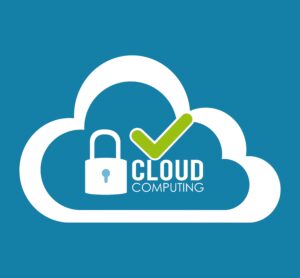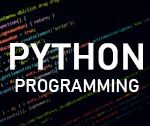Cloud Computing Security Certification: Craw Security

Cloud Computing Security Certification: Craw Security
Introduction to Cloud Computing
In today’s rapidly digitizing world, cloud computing has emerged as a transformative force. The phenomenon is altering the operational framework of enterprises, providing them with the potential to scale, adapt, and reduce costs. Nevertheless, the transition to cloud computing also presents distinct security concerns. The protection of data becomes of utmost importance as it transitions from on-premises servers to the expansive realm of the cloud. Cloud Computing Security Certifications serve as a symbol of confidence and experience for professionals seeking to protect digital assets within the domain of cloud computing.
The Importance of Cloud Computing Security
Prior to delving into certifications, it is crucial to comprehend the importance of cloud computing security. With the growing dependence of organizations on cloud services, including various aspects such as data storage and application hosting, there is a consequential increase in the reliance on third-party providers for the handling of sensitive information. Potential dangers in this context encompass the possibility of data breaches, unauthorized access, and data loss. Implementing robust cloud security measures not only serves to prevent these potential dangers but also guarantees adherence to regulatory requirements and enhances consumer confidence.
What is Cloud Computing Security Certification?
Definition and Overview
In response to the industry’s demand for specific expertise in cloud computing security, a number of esteemed organizations have implemented certification programs. These certifications are specifically designed to authenticate an individual’s proficiency in the implementation and administration of security protocols inside a cloud computing environment.
Moreover, there are many popular Cloud Security Certifications, such as the following:
- Certified Information Systems Security Professional (CISSP),
- Certified Cloud Security Professional (CCSP),
- Certificate of Cloud Security Knowledge (CCSK),
- AWS Certified Security – Specialty,
- Microsoft Certified: Azure Security Engineer Associate, etc.
Benefits of Getting Certified
In the digital world, there are so many Benefits of Earning a Cloud Security Certification, such as mentioned in the following table:
| Validation of Expertise | Certification serves as evidence of a professional’s expertise and proficiency in the field of cloud security, enhancing their competitive advantage within the employment sphere. |
| Enhanced Career Prospects | Certified professionals frequently experience enhanced employment prospects, elevated remuneration, and augmented job stability. |
| Up-to-Date Knowledge | Certification training plays a crucial role in ensuring that professionals remain up-to-date with the most recent threats, technologies, and best practices in the field of cloud security. |
| Networking | Participation in a certification program frequently facilitates access to a community of professionals who share similar interests and goals, so promoting opportunities for collaboration and the exchange of knowledge. |
The Process of Obtaining Certification
- Study Materials and Resources
Undertaking the pursuit of a Cloud Computing Security Certification necessitates thorough preparation, with the acquisition of appropriate study materials and resources being of utmost importance. These resources frequently include fundamental textbooks, online courses, webinars, and interactive laboratories that replicate real-life situations.
Certification bodies that are widely recognized for their credibility often offer an official study guide that delineates the fundamental domains and objectives covered in the certification examination. In addition to formal educational resources, some online platforms provide additional courses that are specifically designed to support the acquisition of specific certificates.
In addition, these courses aim to strengthen fundamental principles by utilizing video lectures, quizzes, and interactive conversations among peers. Moreover, forums and online communities can provide significant value. Candidates are afforded the opportunity to interact with their peers, exchange resources, engage in discussions on complex subjects, and get valuable insights from individuals who have successfully completed the certification process.
Essentially, the combination of authoritative manuals, supplementary classes, practical experiments, and peer engagements results in a comprehensive collection of resources that can significantly augment an individual’s preparedness.
- Exam Process and Format
The initial step in undertaking a Cloud Computing Security Certification examination typically involves the act of registering on the official website of the certifying authority. Subsequently, individuals proceed to choose a suitable examination day and test center. In recent times, some certifications have incorporated the provision of online proctored examinations, enabling individuals to undertake assessments from the convenience of their residences, while being supervised through webcam surveillance.
Regarding the structure, these examinations often comprise several question types such as multiple-choice, multiple-response, and scenario-based questions. The purpose of these questions is to evaluate a candidate’s theoretical understanding and their ability to apply information in practical situations. Certain examinations may incorporate interactive laboratory sessions when participants are required to exhibit practical skills in real time. The duration of examinations often ranges from 2 to 4 hours. It is imperative for candidates to acquaint themselves with the format in advance, typically by means of simulated tests and practice examinations.
Upon the conclusion of the assessment, candidates often receive an initial notification indicating either a provisional pass or fail status, which is promptly followed by the issuance of an official score report. Upon successful completion of the examination, candidates are subsequently granted the certification, whilst individuals who do not meet the required criteria are typically provided with assistance pertaining to specific areas in need of improvement. These individuals are also afforded the opportunity to retake the examination once a designated waiting period has elapsed.
Why do Organizations Value Cloud Security Certifications?
Cloud technology has emerged as a fundamental infrastructure for numerous contemporary enterprises, facilitating unprecedented levels of adaptability, scalability, and cost-effectiveness that were previously inconceivable. Nevertheless, the increasing rate of cloud usage is accompanied by a corresponding rise in the security concerns that are inherently linked to it. Cloud security certifications are of significant importance in this particular environment, as they are highly valued by enterprises:
- Validation of Expertise,
- Risk Mitigation,
- Regulatory Compliance,
- Operational Efficiency,
- Competitive Advantage,
- Continuous Learning,
- Cost Savings,
- Stakeholder Confidence,
- Holistic Security Approach, etc.
How Cloud Security Certification Benefit Individuals?
- Career Advancements
Acquiring a Cloud Security Certification substantially enhances an individual’s professional portfolio. In a highly competitive industry, possessing a recognized certification sets candidates apart from their peers, hence enhancing their attractiveness to potential employers. It conveys not just a demonstration of specialized knowledge, but also a profound devotion to the field and a steadfast commitment to being current. This can potentially provide individuals with access to more advanced jobs, leadership responsibilities, and highly esteemed employment prospects within well-established companies and burgeoning technology startups.
- Better Salary Opportunities
In the contemporary digital environment, the significance of cloud security has been steadily increasing. As a result, people who possess certifications in this field frequently enjoy greater wages in comparison to their non-certified colleagues.
In addition, organizations acknowledge the significance that these individuals contribute and are prepared to provide appropriate compensation in response. Based on a multitude of compensation surveys and evaluations of the labor market, it is evident that persons possessing cloud security certificates often receive significantly better remuneration. Moreover, in several instances, they often enjoy supplementary incentives and advantages that are associated with specialized positions.
- Skill Enhancement
The act of engaging in the preparation and acquisition of a Cloud Security Certification automatically leads to the growth of one’s skills. The comprehensive training and academic research necessary guarantee that workers are exposed to the most recent trends, tools, and optimal methodologies in the field of cloud security. Continuous learning enhances and broadens individuals’ skill sets, hence increasing their proficiency in tackling practical issues. Furthermore, the certification procedure frequently exposes individuals to a network of professionals and resources, so enhancing their opportunities for growth and knowledge acquisition.
Challenges in Cloud Security
The advent of cloud computing has brought about a significant transformation in the operational practices of enterprises, presenting them with unprecedented advantages in terms of adaptability, expandability, and financial efficiency. However, like any disruptive technology, it poses a distinct set of concerns, particularly in the domain of security.
Moreover, organizations and professionals have several key issues when it comes to securing cloud security:
- Data Breaches,
- Data Loss,
- Lack of Control,
- Shared Security Responsibility,
- Compliance Challenges,
- Insecure Interfaces and APIs,
- Insider Threats,
- Account Hijacking,
- Limited Visibility,
- Advanced Persistent Threats (APTs),
- Multi-Tenancy Issues,
- Rapidly Evolving Threats, etc.
The Future of Cloud Computing Security Certifications
The continuously growing challenges and solutions within the dynamic ecosystem of cloud computing present an intriguing outlook for the future of certifications in cloud computing security. The following is a future projection of potential developments in the forthcoming years:
- Increased Demand,
- Specialization,
- Continuous Learning and recertification,
- Integration of Hands-on Assessments,
- Focus on Emerging Technologies,
- Ethical Considerations and Training,
- Collaborations with Universities and Institutions,
- Adaptive Exam Technologies,
- Global Standardization,
- Increased Public Awareness, etc.,
FAQs Cloud Computing Security Certification
About Cloud Computing Security Certification
1: Why is cloud computing security certification essential?
The certification in Cloud Computing Security is not merely a superficial achievement within the realm of information technology; rather, it possesses substantial worth for both individuals and enterprises alike. There are several reasons why it is considered to be of utmost importance:
- Validation of Expertise,
- Rising Security Threats,
- Building Trust,
- Competitive Edge,
- Regulatory and Compliance Demands,
- Continuous Skill Upgradation,
- Holistic Understanding,
- Financial Benefits,
- Confidence in Decision Making,
- Global Recognition, etc.
2: How long is the certification valid?
Similar to numerous professional qualifications, Cloud Computing Security qualifications often have a designated duration of validity, necessitating periodic renewal. The precise term of certification may differ based on the particular certification and the governing organization responsible for its administration. Generally, the tenure of their validation consists of three years from the date of issuance.
3: Does certification guarantee job placements?
Certification, whether in cloud computing security or any other domain, does not guarantee job placements. However, it does offer several advantages in the job market, such as Enhanced Credibility, Competitive Edge, Skill Verification, Networking Opportunities, Higher Salary Potential, Professional Development, and many more.
4: What is a cloud security certificate?
A cloud security certificate is a testimonial of the training being imparted successfully to an individual under the specified training of a well-qualified mentor having many years of quality experience in one’s respective trade.
5: Is the CCSP exam difficult?
The level of difficulty associated with the CCSP Exam is rather high, hence it is advisable to obtain comprehensive information regarding the exam well in advance. The examination has a formidable level of difficulty and may require a time commitment of up to three hours for completion. The examination additionally comprises a total of 125 multiple-choice questions. In addition, it should be noted that the CCSP Exam Questions are exclusively offered in the English language.
6: Which is better CCSP or CISSP?
The CISSP certification provides individuals with the opportunity to advance their careers in management roles, whilst the CCSP certification enables them to remain focused on technical aspects within their profession. Furthermore, obtaining a Certified Information Systems Security Professional (CISSP) certification is tantamount to acquiring the necessary expertise for the Certified Cloud Security Professional (CCSP) certification.
7: Is cloud security a good career?
Given the increasing demand for people specializing in cloud security, embarking on a career in this domain offers significant advantages.
8: Is cloud security the same as cyber security?
Cloud security and cybersecurity are distinct concepts, although they share a tight relationship. The phrase “cybersecurity” refers to a comprehensive range of methods, technologies, and processes that are specifically developed to safeguard digital data, networks, and systems from various forms of cyberattacks, illegal access, and potential harm. The scope of digital environments encompassed by this subject matter is extensive, ranging from individual devices to large-scale corporate networks. In contrast, cloud security pertains to the protection of cloud-based data, apps, and infrastructure, and is considered a distinct component within the broader field of cybersecurity. The paper discusses the distinct difficulties presented by the cloud environment, including issues such as data breaches, diminished control over end-point security, and risks associated with shared resources. Although cloud security measures are– encompassed under the domain of cybersecurity, it is important to note that not all cybersecurity techniques are applicable to the cloud.
9: Is the CCSP harder than CISSP?
The perceived difficulty level of the CCSP certification exam is not higher than that of the CISSP exam, as the latter is often seen as the more challenging of the two. The CISSP is often regarded as a rigorous certification that assesses a deeper level of knowledge, unlike the CCSP, which is not as demanding in this regard.
10: How long should I study for CCSP?
Typically, a duration of 120 days is deemed adequate for the purpose of adequately preparing for the CCSP examination, which can be accessed upon completion of the exam payment process. It is recommended to allocate a daily time frame of 2 hours for studying for exams, resulting in a total of 40 to 60 hours of adequate preparation.
11: Which pays more cloud or cyber security?
Based on industry statistics, it is observed that Cloud Engineers in the United States often earn an annual salary ranging from $100,000 to $180,000. Similarly, Cybersecurity experts can anticipate earning from $90,000 to $160,000 per year, contingent upon factors such as their level of expertise and geographical region. Both disciplines appear to have promising opportunities for high-income potential.
12: What is the highest salary in cloud security?
The salary range for Cloud Security Engineers in India varies from ₹ 3.5 Lakhs to ₹ 25.0 Lakhs, with an average yearly compensation of ₹ 9.9 Lakhs.
Conclusion
All in all, the significance of cloud security cannot be understated in light of the ongoing dominance of cloud computing in the digital realm. Obtaining a Cloud Computing Security Certification not only enhances an individual’s professional capabilities but also aligns with the growing industry’s need for competence in cloud security. The significance of this achievement extends beyond mere symbolism, as it serves as a guiding light toward a future characterized by enhanced digital security. Obtaining a certification in cloud computing can have a significant impact on individuals, regardless of their level of expertise or experience in the field.
In the bottom line, we would like to say that we have tried to elaborate on every nitty-gritty detail related to Cloud Computing Security Certifications facilitated by Craw Security from many highly credible resources that have already embarked on their positions on the international levels. If a person is willing to take AWS Cloud Security, or AWS Associate Course in Delhi NCR from the industry’s best training instructors, then Craw Security would be an ideal spot for you. Call +91-9513805401 for more info on this.
















